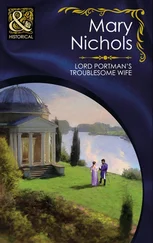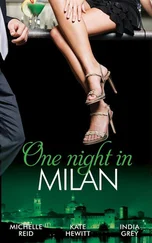Mary Waddington - Italian Letters of a Diplomat's Wife - January-May, 1880; February-April, 1904
Здесь есть возможность читать онлайн «Mary Waddington - Italian Letters of a Diplomat's Wife - January-May, 1880; February-April, 1904» — ознакомительный отрывок электронной книги совершенно бесплатно, а после прочтения отрывка купить полную версию. В некоторых случаях можно слушать аудио, скачать через торрент в формате fb2 и присутствует краткое содержание. Издательство: Иностранный паблик, Жанр: Биографии и Мемуары, История, foreign_edu, foreign_antique, foreign_prose, на английском языке. Описание произведения, (предисловие) а так же отзывы посетителей доступны на портале библиотеки ЛибКат.
- Название:Italian Letters of a Diplomat's Wife: January-May, 1880; February-April, 1904
- Автор:
- Издательство:Иностранный паблик
- Жанр:
- Год:неизвестен
- ISBN:нет данных
- Рейтинг книги:3 / 5. Голосов: 1
-
Избранное:Добавить в избранное
- Отзывы:
-
Ваша оценка:
- 60
- 1
- 2
- 3
- 4
- 5
Italian Letters of a Diplomat's Wife: January-May, 1880; February-April, 1904: краткое содержание, описание и аннотация
Предлагаем к чтению аннотацию, описание, краткое содержание или предисловие (зависит от того, что написал сам автор книги «Italian Letters of a Diplomat's Wife: January-May, 1880; February-April, 1904»). Если вы не нашли необходимую информацию о книге — напишите в комментариях, мы постараемся отыскать её.
Italian Letters of a Diplomat's Wife: January-May, 1880; February-April, 1904 — читать онлайн ознакомительный отрывок
Ниже представлен текст книги, разбитый по страницам. Система сохранения места последней прочитанной страницы, позволяет с удобством читать онлайн бесплатно книгу «Italian Letters of a Diplomat's Wife: January-May, 1880; February-April, 1904», без необходимости каждый раз заново искать на чём Вы остановились. Поставьте закладку, и сможете в любой момент перейти на страницу, на которой закончили чтение.
Интервал:
Закладка:
Three or four men came out for dinner who hadn't been able to get off early (diplomates, I fancy, for they were certainly the only men in this gay city who had any occupation), also a tapeur 14 14 Man to play on the piano.
and little objets for the cotillon. We did have about an hour before dinner to rest and make ourselves look as nice as we could—but naturally a long, hot day wandering about in a garden, and sitting on half-ruined crumbling stone walls doesn't improve muslin dresses. The dinner was very gay and good, and the hour on the terrace afterward with coffee, enchanting. One or two of the men had brought guitars, and there were scraps of songs, choruses, "stornelli," going on all the time. One man, with a lovely tenor voice, sat on the lower step singing anything—everything—the rest of us joining in when we knew the song. The terrace was quite dark—the house brilliantly lighted standing out well; and every now and then the Italian servants would appear at the door with their smiling faces—black eyes and white teeth—evidently restraining themselves with difficulty from joining in the choruses. I really don't think Mary's "Bacco" could have resisted. I always hear him and Francesco singing merrily over their work in the morning. They certainly are an easy-going, light-hearted race, these modern Florentines. One can hardly believe that they are the descendants of the fierce old Medici who sit up so proud and cold on their marble tombs at San Lorenzo.
We began the cotillon about 10, and it lasted an hour and a half. There were 10 couples, plenty of flowers and ribbons, and, needless to say, an extraordinary "entrain." We ended, of course, with the "Quadrille infernal" (which Alberti always leads with the greatest spirit), made a long chain all through the house down the terrace steps (such a scramble) and finally dispersed in the garden. I shouldn't like to say what the light dresses looked like after that. We started back to Florence about midnight in two coaches—such a beautiful drive. The coming out of the gates, and down the steep hill with a bad road and a narrow turn was rather nervous work—but we finally emerged on the broad high-road looking like a long silver ribbon in the moonlight winding down the valley. We had the road quite to ourselves—it was too late for revellers, and too early for market people, so we could go a good pace, and galloped up and down the hills, some of them decidedly steep. It was a splendid night—that warm southern moon (so unlike our cold white moonlight) throwing out every line sharply. It was just 3 o'clock when we drew up at Casa Guadagni.
I didn't intend to write so much about Signa, but I had just been telling it all to W., and I think it will amuse the family in America.
To H. L. K
I try and write every day, but it is not easy. We are out all the time. The weather is divine, and it seems wicked to stay indoors. W. and I go out every morning, and we do a good deal of sight-seeing in a pleasant, idle way. I go sometimes to the Boboli Gardens and wait for him there when he has letters to write. It is all so unlike our Florence of ten years ago; I love the quiet grey streets. The gardens are delicious; dark and cool; you see no one, hear nothing but the splash of the fountains, and the modern busy world doesn't exist. I am becoming quite intimate with the custode—he is most friendly—smiles all over when W. appears—and remarked the other day casually when he was late and I was waiting at the gate, "Il marito si fa aspettare." This morning we pottered about the Ponte Vecchio, where all the shops look exactly the same, and apparently the same old wrinkled men bending over their pearls and turquoises. So many foreigners have bought pearls that the prices have all gone up. There has been a great influx of strangers these last days as Easter is early, and we hear English on all sides. Two pretty fair-haired English girls were loitering about the bridge and shops, attracting much attention and admiration, quite freely expressed, from some of the numerous young men who are always lounging about; but the admiration is so genuine and so open that no one could be angry or consider it an impertinence.
Do you remember one of my first Italian experiences in crossing the Piazza di Spagna one afternoon with my white kitten on my shoulder, and one of the group of "paini" 15 15 Young bourgeois.
standing at the door of the bank remarked smilingly, "Che gatto fortunato!" I was rather taken aback but pleased certainly. At Doney's in the Via Tornabuoni, there is always the same group of men on the pavement about tea-time, when every one goes in for a cup of tea or chocolate—all much interested in the pretty girls who go in and out—also the society men standing at the door of the Club making remarks and criticising, with rather more reserve perhaps.
We took a fiacre when we had crossed the bridge and drove to Santa Maria Novella. The black and white façade looked like an old friend, also the spezeria where we used to buy the sachets of iris powder in the old days. We wandered all over the church, looked at the frescoes and the wonderful Cimabue Madonna, and then through the cloisters. A monk (one of the few left) in the long white robe of the Dominicans was working in the garden. He looked very picturesque in the little square of green, and was apparently engrossed in his work as he didn't even turn his head to look at us. He wasn't at all an old man as we saw when he raised himself—was tall and broad-shouldered. What a life it must be for a man in the full force of strength and health. One can understand it in the old days before books and printing, when the Dominicans and Benedictines were students and their parchments made history, but now when everybody reads and discusses everything it seems incredible that a man should condemn himself to such an existence.
We dined at the Tchiatcheffs, and on our way home crossed a procession of "la Misericordia"; all the men with long cloaks and cowls drawn tight over their faces, with slits for the eyes. One could see nothing but bright, keen eyes, impossible to recognise any one. I believe men of all classes belong to the society, and we had probably various friends among them. I suppose they were going to get a corpse (which is always done at night in Florence, or, in fact, everywhere in Italy) and their low, melancholy chant rather haunted me. They say they do a great deal of good when there is an accident or a case of malignant fever, in transporting the patient to a hospital; but it was an uncanny sight. They tell me they went to get a young Englishman the other day who had fever, and was to be moved from the hotel to a private hospital. It was the doctor's suggestion, and I am sure they carried him quite well and gently, but it seems his poor wife went nearly mad when the procession arrived, and she saw all those black eyes gleaming from behind the cowls.
We have been this afternoon to tea at "Camerata," the Halls' Villa. The drive out was charming, the day beautiful and bright, flowers everywhere. Quantities of peasant children ran alongside the carriage as we toiled up the hills, chattering volubly (many Inglesi thrown in) and holding out little brown hands filled with yellow flowers. The Camerata garden and terrace were lovely. It was still a little cool to sit out, so we had tea inside. The lawn was blue with violets, and there were quantities of yellow flowers, crocuses, narcissi everywhere, roses just beginning. We met various old friends there—principally English—among others Miss Arbuthnot, looking quite the same; and the two Misses Forbes who have a charming apartment in Florence—we went there to tea the other day. Our friend and compatriot, Mrs. K., was also there; very dressy and very foolish; poor dear she never was wise. She was glad to see me, was sure I was enjoying the change and rest after my "full life"; then "Did you live in Paris?" I felt like saying, "No, French Cabinet Ministers usually live in Yokohama," but I desisted from that plaisanterie as I was sure she would go away under the impression that W. had been a member of the Japanese Cabinet. W. doesn't like my jokes—thinks they are frivolous.
Читать дальшеИнтервал:
Закладка:
Похожие книги на «Italian Letters of a Diplomat's Wife: January-May, 1880; February-April, 1904»
Представляем Вашему вниманию похожие книги на «Italian Letters of a Diplomat's Wife: January-May, 1880; February-April, 1904» списком для выбора. Мы отобрали схожую по названию и смыслу литературу в надежде предоставить читателям больше вариантов отыскать новые, интересные, ещё непрочитанные произведения.
Обсуждение, отзывы о книге «Italian Letters of a Diplomat's Wife: January-May, 1880; February-April, 1904» и просто собственные мнения читателей. Оставьте ваши комментарии, напишите, что Вы думаете о произведении, его смысле или главных героях. Укажите что конкретно понравилось, а что нет, и почему Вы так считаете.












